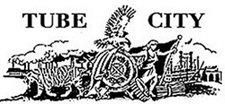
Sir Francis Bacon, 1st Viscount St. Alban, Kt., QC (January 22, 1561 - April 9, 1626) was an English philosopher, statesman, scientist, jurist, orator, essayist, and author. He served both as Attorney General and Lord Chancellor of England. After his death, he remained extremely influential through his works, especially as philosophical advocate and practitioner of the scientific method during the scientific revolution.
Bacon was knighted in 1603, and created Baron Verulam in 1618 and Viscount St. Alban in 1621; as he died without heirs, both peerages became extinct upon his death. He famously died by contracting pneumonia while studying the effects of freezing on the preservation of meat. (Click here for full Wikipedia article)
-----
A wise man will make more opportunities, than he finds.
Be angry, but sin not. Let not the sun go down upon your anger. Anger must be limited and confined, both in race and in time.
But by far the greatest obstacle to the progress of science and to the undertaking of new tasks and provinces therein is found in this- that men despair and think things impossible.
Certainly fame is like a river, that beareth up things light and swollen, and drowns things weighty and solid.
Death is a friend of ours; and he that is not ready to entertain him is not at home.
Fortune is like the market, where many times, if you can stay a little, the price will fall.
Glorious men are the scorn of wise men, the admiration of fools, the idols of parasites, and the slaves of their own vaunts.
He that hath wife and children hath given hostages to fortune; for they are impediments to great enterprises, either of virtue or mischief.
He that will not apply new remedies must expect new evils; for time is the greatest innovator.
Hope is a good breakfast, but it is a bad supper.
Houses are built to live in, not to look on; therefore, let use be preferred before uniformity, except where both may be had.
Human knowledge and human power meet in one; for where the cause is not known the effect cannot be produced.
If a man look sharply and attentively, he shall see Fortune; for though she is blind, she is not invisible.
In charity there is no excess.
It is a strange desire, to seek power and to lose liberty.
It is not possible to run a course aright when the goal itself has not been rightly placed.
It is true that that may hold in these things, which is the general root of superstition; namely, that men observe when things hit, and not when they miss; and commit to memory the one, and forget and pass over the other.
Money is like muck, not good except it be spread.
Nature is often hidden; sometimes overcome; seldom extinguished.
Nature, to be commanded, must be obeyed.
Nothing doth more hurt in a state than that cunning men pass for wise.
Prosperity doth best discover vice, but adversity doth best discover virtue.
Prosperity is the blessing of the Old Testament; adversity is the blessing of the New.
Reading maketh a full man; conference a ready man; and writing an exact man.
Riches are for spending.
Silence is the virtue of a fool.
Some books are to be tasted, others to be swallowed, and some few to be chewed and digested...
The human understanding is of its own nature prone to suppose the existence of more order and regularity in the world than it finds.
The joys of parents are secret; and so are their griefs and fears. They cannot utter the one; nor they will not utter the other.
The monuments of wit survive the monuments of power.
There is no excellent beauty that hath not some strangeness in the proportion.
To spend too much time in studies is sloth; to use them too much for ornament, is affectation; to make judgment wholly by their rules, is the humor of a scholar.
Truth will sooner come out from error than from confusion.
Virtue is like a rich stone- best plain set.
Categories: Francis Bacon, Question of the day
![]() Subscribe
[Home]
[Commentwear]
[E-Mail KGB]
Subscribe
[Home]
[Commentwear]
[E-Mail KGB]
Older entries, Archives and Categories Top of page
















